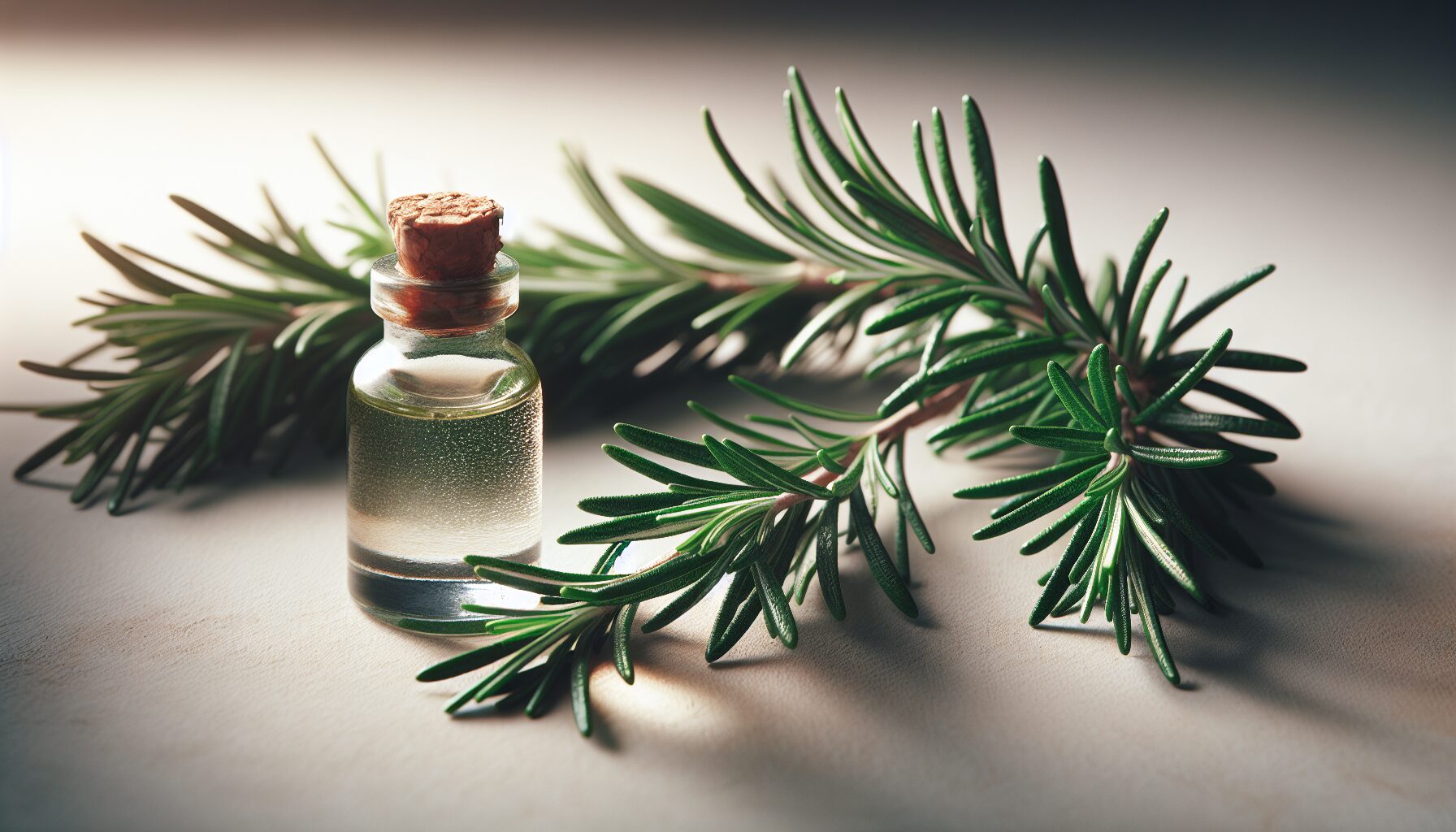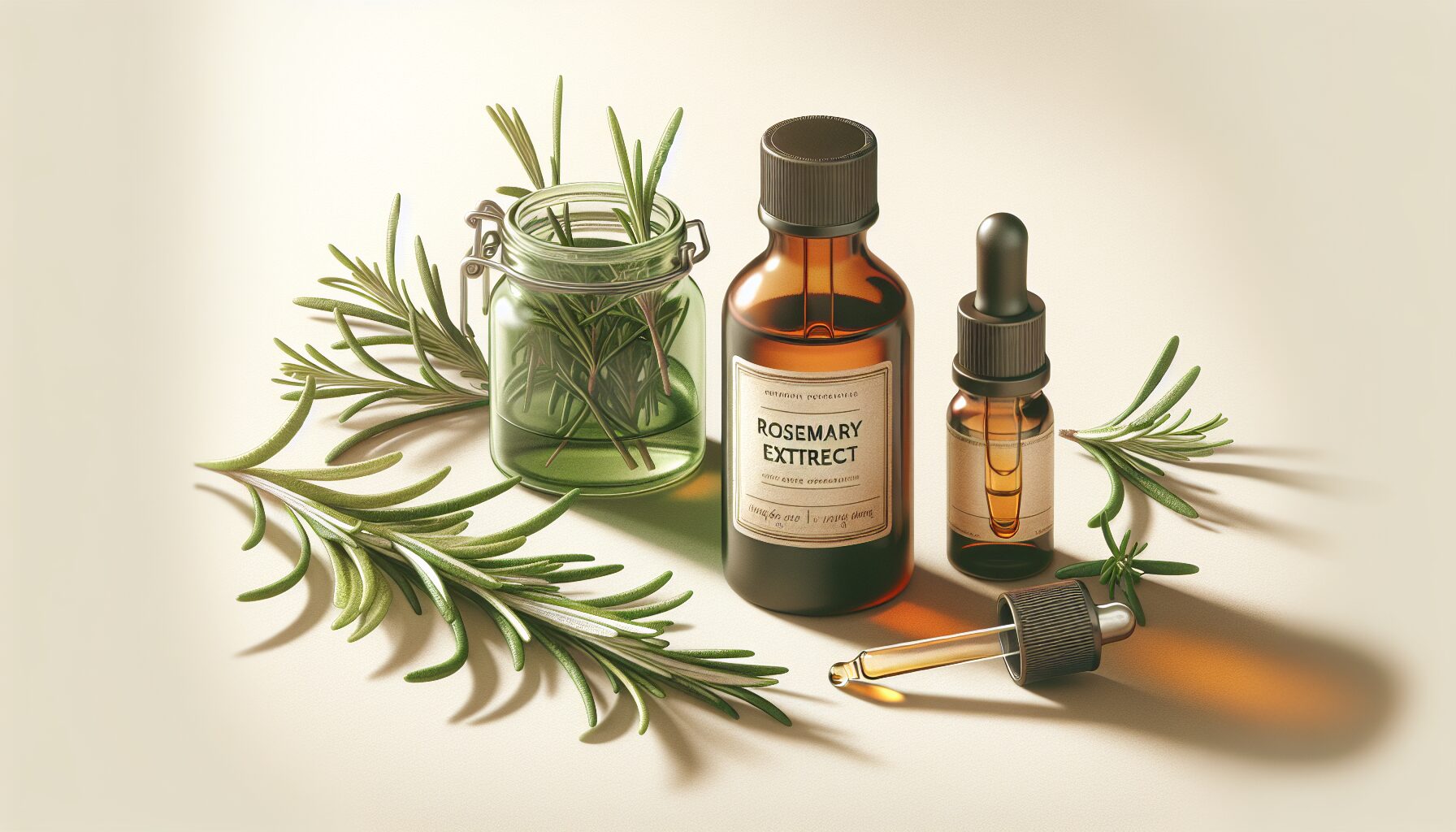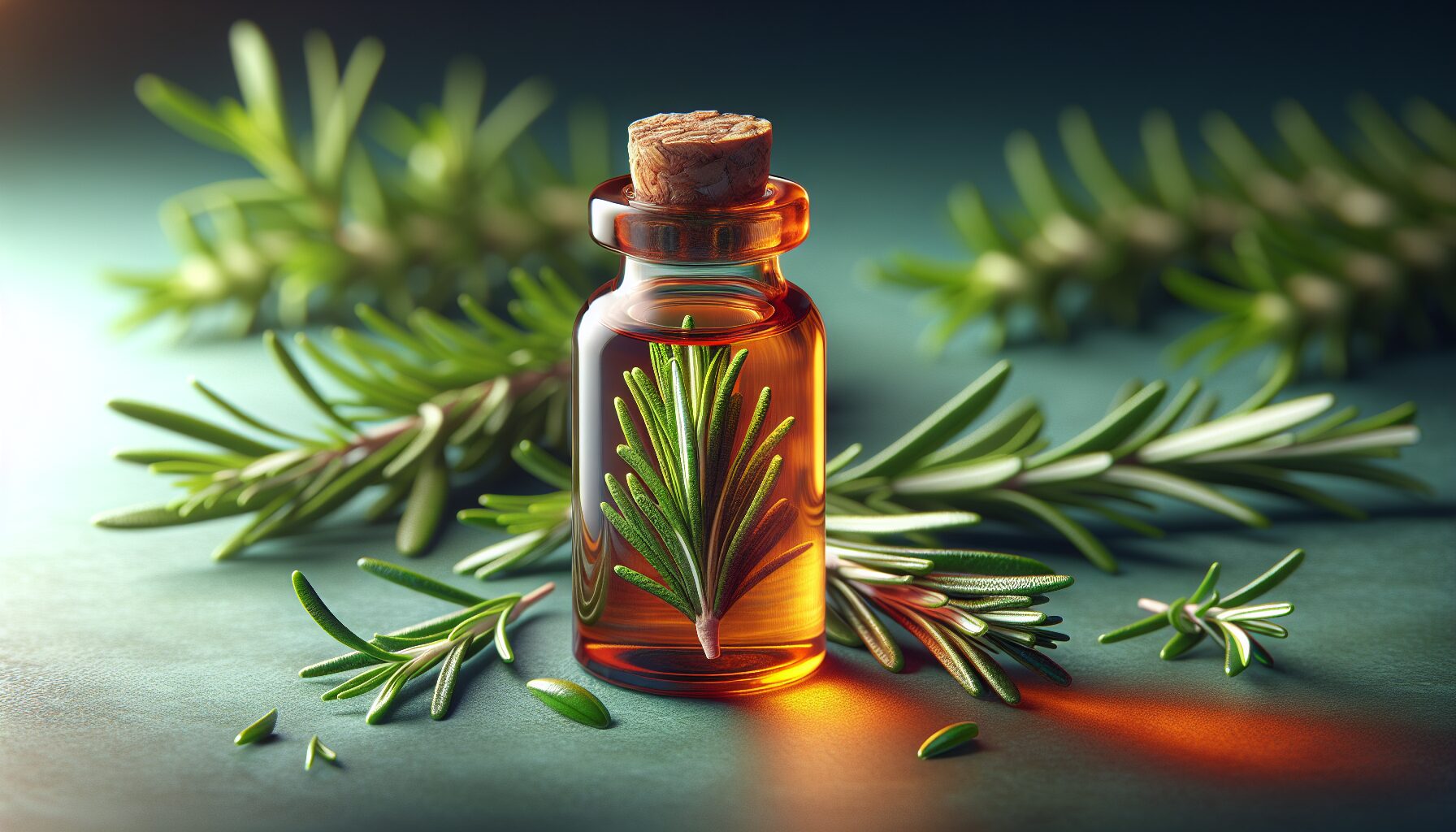
Rosemary Oil For Hair Growth: Antioxidant Powerhouse
Rosemary extract, or rosemary oil, is very popular for assisting with hair growth because of its antioxidant content, including potent antioxidant rosmarinic acid. Hair loss or lack of adequate hair growth can be a challenge that many people have to confront every day. There is evidence to suggest that topical antioxidants can assist with reducing lack of hair growth and hair loss, at least in the short term. This is thought to occur through the reduction of stress responses that occur with antioxidant status. Oxidative stress can have big impacts on hair cell development and growth.
Stress causing oxidative molecules, with high energy, are able to damage important parts of cells and this is how many cancers are caused. Key parts of cells that can be damaged include cell membrane lipids, proteins and DNA. These parts need then need replacing. This process is also how the cellular ageing process works. When the body is under excessive physiological stress, many essential resources are used to address the situation that also need to be replenished.
Chronic oxidative stress causes a massive imbalance of antioxidants in the body. Where you have chronic oxidative stress, you will see a reduced capacity of the body to detoxify and repair itself from oxidative damages. Naturally, this is going to effect healthy growth and can even lead to the development of cancers.
Rosemary oil, or extract, is quite a popular ingredient in many topical hair products and certain studies present evidence that it can encourage hair growth. The concentration of antioxidants in rosemary oil extracts is why it is thought to have such a powerful influence on the body. Let’s discuss the power of rosemary oil and rosemary extracts in more detail.

Rosemary Oil Antioxidants Effect On Hair Growth
Various studies have reported that there is a very significant antioxidant quality to rosemary extracts and oils. Rosemary oils seem to have large antioxidant effects that can even preserve and protect the quality of some food products. These antioxidant effects have been isolated by current research to be mostly due to carnosic acid and ursolic acid.
Extracts of rosemary are also thought to provide a synergistic effect with other antioxidants for higher antioxidant performance. Rosemary extract seems to be good at preventing the oxidation of lipids, or fatty acids, similar to those found in cell membranes. These findings immediately provide optimism for the antioxidant effects of rosemary, both topically and when eaten.
Rosmarinic Acid
Rosemary is rich in phenolic compounds, such as a powerful antioxidant called rosmarinic acid. Rosmarinic acid has been specifically isolated in high quantities in rosemary extracts. It is a polyphenol found in many plants and herbs. This potent antioxidant has identified in various studies to have antiviral, antibacterial and anti-inflammatory effects in the body.
Within many medicinal plants and herbs, rosmarinic acid is considered to have health promoting effects. This can be explained through the natural role of rosmarinic acid as natural plant defensive compound. The antiviral properties of rosmarinic acid are so strong that it is thought to be a potential therapeutic treatment for Herpes simplex viral infections.
It is possible that because rosmarinic acid is such a strong antioxidant, that it may also positively stimulate the immune system against infections. This occurs through immunomodulation, where an antioxidant supports antioxidant vitamins that are needed for immune functioning.
As we’ve mentioned, oxidative stress plays a massive role in maintaining optimal skin and hair appearance. Chronic oxidative stress negatively effects these qualities and promotes accelerated ageing, reducing the body’s ability to recover from damage. Clearly, this effects hair growth and maintenance too. One study found that topical applications of rosemary extract, rich in compounds like rosmarinic acid, was capable of reducing alopecia.
This study concluded that rosemary extract could be a promising drug for promoting hair growth. Qualities of rosmarinic acid certainly contribute to this, including the protection against UV induced damage and damage to essential cellular proteins. The clear protection against from this oxidative stress give rosemary oil potential as a hair growth product or cosmeceutical. Rosmarinic acid was also shown to prevent lipid peroxidation, protecting cell fatty acids.
Carnosic Acid
Some studies report that carnosic acid, a phenolic diterpene, is responsible for 90% of the antioxidant capacity within rosemary extracts. It has two unique phenolic groups very close to each other that double up this compound’s antioxidative power.
Because of its antioxidant ability, this compound is likely to also be responsible for most rosemary oil’s protective effects on cells. The antioxidant effects of carnosic acid are so strong that this compound may have anti-cancer potential. While some studies also suggest that it could have some anti-bacterial properties.
Research suggests that carnosic acid might be a stronger antioxidant than vitamin E, or alpha-tocopherol. These recent developments have led to its increased use in the cosmetics industry. Carnosic acid is recognised as an antioxidant, like rosmarinic acid, capable of photoprotective activity in human skin cells. Carnosic acid also has anti-inflammatory qualities and antiaging qualities. Specifically, rosemary oil extracts rich in carnosic acid seem to protect skin surface fatty acids really well. Its uptake into the body is also well documented.
Carnosol is a similar phenolic diterpene to carnosic acid and shares many similar properties. This is another antioxidant compound found in high quantities in rosemary oil extracts. These bioactive compounds have great therapeutic potential, especially in the cosmetics industry, because of their sheer antioxidant power.
Because of its high antioxidant potential, it is no surprise that rosemary has been included in anti-alopecia formulations. Rosemary may be able to help to regulate the flow and structure of blood vessels, which promotes hair follicle regeneration. They may also stabilise testosterone levels, promoting normal metabolic hair growth. Rosemary extracts, high in carnosic acid, have been used in cosmetics or skin products for antibacterial and antifungal properties. While they are also considered to be able to reduce minor muscle and joint pains.

Ursolic Acid
Another strong antioxidant found in high quantities in rosemary is ursolic acid. It is a triterpene, researched for its anti-inflammatory effects on different cells of the body. This antioxidant molecule also encourages healthy cell growth and has anti-cancer properties too. The properties of ursolic acid mean that it can stimulate muscle growth and also improve muscle strength. Ursolic acid definitely contributes to the antioxidant and anti-inflammatory qualities of rosemary oils and extracts.
Skin applications of a cream rich in rosemary oil extract improved skin hydration, firmness and elasticity. These are all antiaging indicators and this is why rosemary oil is included in skin conditioner products. There is evidence that rosemary extract can help with atopic dermatitis. Rosemary has also been shown to help the skin to repair itself from minor wounds, including burns. The compounds within rosemary extracts seem to promote collagen production and skin cell growth.
The antiaging properties of rosemary oils for the skin, which will also be of potential benefit to hair growth, are thought to be due to rosemary antioxidants like ursolic acid. These qualities may help to maintain skin homeostasis, which is essential for preventing skin diseases and promoting optimal skin health. A topical rosemary extract, high in ursolic acid, improved the appearance of skin cellulite in one study.
Studies with topical rosemary tonics certainly seem to encourage hair growth too and protein synthesis promoting qualities may be partly responsible. The antioxidant qualities of compounds in rosemary extracts, like ursolic acid, seem to conserve hair colouration and prevent hair damage when applied to hair.

Summary
Rosemary oil is an increasingly popular component of hair cosmeceuticals and rosemary extracts may be able to assist with hair growth. This is largely due to its antioxidant content. Rosemary extracts contain some powerful antioxidants including rosmarinic acid, carnosic acid and ursolic acid.
These antioxidant compounds carry the potential to remove highly reactive energy that can cause cancers or cell damage. This includes oxidative stresses that can damage hair cells and effect their growth. Rosemary oil compounds may therefore be able to encourage normal hair cell development and growth, which would lead to improved hair growth. Under chronic oxidative stress the body can’t repair or detoxify itself as well.
The antioxidant compounds in rosemary extracts seem to preserve fatty acids and proteins from damage. Rosmarinic acid is a powerful antioxidant present in rosemary. Carnosic acid is responsible for 90% of the antioxidant capacity within rosemary extracts. Its antioxidant phenolic groups are very unique, providing raw antioxidant power. Ursolic acid is an impressive antioxidant compound that can also encourage muscular growth. The compounds within rosemary extracts seem to promote collagen production and also skin cell growth.
Topical applications of rosemary oil extracts, rich in these antioxidant compounds, have been shown to improve hair growth in some cases. While topical rosemary tonics have also been shown to help with some skin conditions. Rosemary extracts have also been shown to have skin photoprotection effects, protecting skin fatty acids. Overall, the compounds in rosemary oil and extracts may be able to help with hair follicle regeneration.
These sorts of developments have led to the increased use of rosemary oils and extracts in the cosmetics industry. Rosemary oils and extracts have potential to encourage optimal cell growth through their antioxidant potential.
For more interesting articles, see the main page below.





